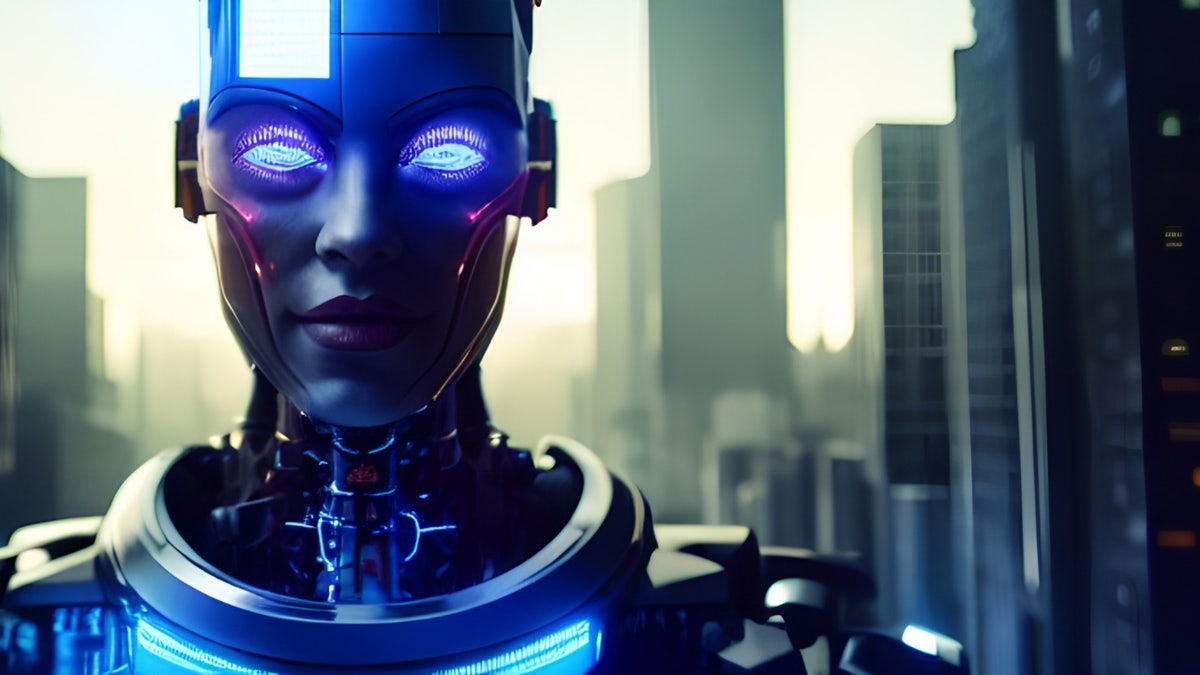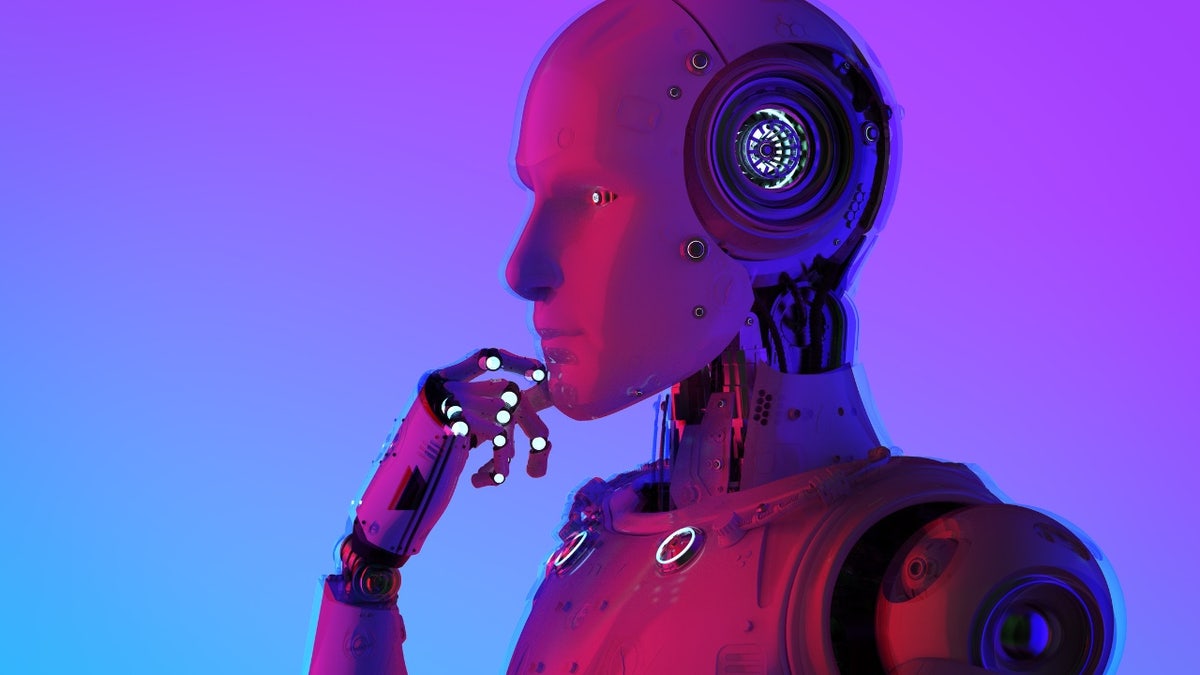Kurt "CyberGuy" Knutsson explains the alarming rise of smishing and how to avoid falling victim
Scammers are texting victims and stealing their information by posing as legitimate businesses or agencies. CyberGuy explains how to stay safe.
Remember the good ol' days when our biggest worry was accidentally pocket-dialing someone? Well, times have changed, and so has technology. We now have these nifty AI systems that can do everything from making restaurant reservations to driving our cars.
Some people even use ChatGPT as a medical resource, suggesting this tech may one day save lives. Unfortunately, we've all seen so many sci-fi movies that this optimism is quite jaded, and in its place, we're all mentally preparing for the robot apocalypse.

Imagine a world where machines get so smart that they outwit us and cause chaos. Far-fetched? Maybe, but some experts are ringing alarm bells, saying we need to regulate AI to avoid such scenarios. ( )
Imagine a world where machines get so smart that they outwit us and cause chaos. Far-fetched? Maybe, but some experts are ringing alarm bells, saying we need to regulate AI to avoid such scenarios. When it comes to AI regulation, you might be thinking, "What's the big deal? Just let the tech do its thing." But, my friend, it's a bit more complicated than that.
AI regulation might sound as dull as your last Zoom meeting, but it's stirring up quite the debate among the tech world's brightest minds. So, should we be scared? Some say yes, others think it's as ridiculous as worrying about a pig flying.
5 DISTURBING EXAMPLES OF WHY AI IS NOT QUITE THERE
Why regulating AI is complicated
Some critics argue that AI is already out of control. They point to examples like facial recognition software gone rogue or biased algorithms that reinforce discrimination. However, even the naysayers agree AI has its perks. It can help us solve complex problems like climate change, or even help find a cure for diseases to more minor fixes, like helping people decide what they want for dinner or where their next travel destination should be.

The question is, how do we strike that perfect balance between the wonders of AI and preventing the tech from going rogue? Advocates of AI regulation say it's high time for the government to step in and lay down some ground rules. They want guidelines that'll keep AI on the straight and narrow. ( )
The question is, how do we strike that perfect balance between the wonders of AI and preventing the tech from going rogue? Advocates of AI regulation say it's high time for the government to step in and lay down some ground rules. They want guidelines that'll keep AI on the straight and narrow.
AI regulation is indeed on its way, and it's essential to establish a framework for trustworthy AI. Modulus CEO Richard Gardner says, "Regulation is absolutely necessary," and that "it is important for regulators to anticipate the concerns now so that the industry can be built up responsibly."
Congressman Ted Lieu suggests that AI could pose a significant risk if not properly regulated. He argues that AI systems like ChatGPT can be used to manipulate public opinion and even create deepfakes, making regulation crucial.
Will regulation stifle growth?
Not everyone is on board with the idea of Uncle Sam stepping in. Some folks argue that regulation will stifle innovation and slow down progress. They believe the tech industry can police itself just fine, thank you very much.
AI RACE CARS REPLACING HUMAN DRIVERS
Creating a global consensus on AI regulation is challenging. With countries like China and Russia having different perspectives on AI ethics and human rights, finding common ground might be an uphill battle.
Unfortunately, we need to face facts; when it comes to AI, it's like trying to tame a wild stallion. You can't just hand over the reins and hope for the best. We need a plan to ensure that AI is a force for good rather than a cause for concern.

What's the solution? We may need a mix of government regulations to provide a safety net and industry self-policing to keep the wheels of innovation turning. ( )
What's the solution? We may need a mix of government regulations to provide a safety net and industry self-policing to keep the wheels of innovation turning. It's like balancing your eccentric aunt's wild party and your strait-laced uncle's dinner table get-together.
Final Thoughts
As the debate rages on, we can only hope that the powers-that-be figure it out before we find ourselves living in a real-life version of "The Terminator." Now that's a plot twist we could do without.
What do you think? Is regulating AI the only way to protect our future? Let us know by writing us at CyberGuy.com/Contact.
CLICK HERE TO GET THE FOX NEWS APP
For more of my tips, subscribe to my free CyberGuy Report Newsletter by heading to CyberGuy.com/Newsletter.
Copyright 2023 CyberGuy.com. All rights reserved.









































